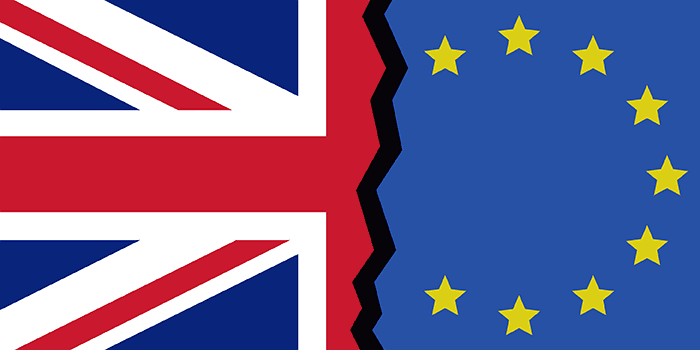We can have a "bonfire of regulation".
Which regulations do you want to remove? most are really good.
Result: Bad
Regulations ensure a minimum set of standards, and are created to address issues like cladding flats in flammable material.
If you have a problem with a piece of regulation, then we can probably improve it.
And we will still need to abide by EU regulations if we want to sell our products to our neighbours - it's just that, outside of the EU, we will no longer have the ability to influence those regulations.
Please tell me one piece of regulation you want to see removed.
For example, scrapping worker safeguards for agency employees and pregnant women?
This video by Femi explains this very well:
So here's some of the arguments I've heard so far.
If we get out the EU we can regulate our products in the way we want.
But if we leave the EU we are fully bound by their laws you have no say in it.
But Switzerland doesn't pass any of their laws.
Now you're probably aware the four freedoms of the European Union.
That's free movement of goods, persons, capital, and services.
And that person's one is obviously while we have immigration.
But those four freedoms together give us completely borderless trade among the 28 member states.
There are many things that governments can do to make sure that products and services from other countries don't get into their market.
And, as a law graduate, I know the government's have tried everything to try and protect their own industries, because that's what they do.
But I want to talk about two concepts that you might not be familiar with.
Harmonization and mutual recognition.
Let's say I'm a British Beer producer, and I want to sell my beer, in all the countries in the European Union.
But let's say that what I call beer in England, isn't what they call beer in Italy.
Let's say that they think the beer we have here is too strong, or in Ireland they think it's tap water.
That would mean I would have to manufacture, market, and package my product in 28 different ways to match the legislation of 28 different member states.
And that's a hell of a lot in terms of marginal costs.
And so as a result I might decide that it's not worth marketing it elsewhere.
Because the countries where my product isn't allowed to be called "beer" are no longer attractive to me as a producer.
So what the EU did was introduce mutual recognition and harmonization.
Mutual recognition means that if England calls something beer everywhere else has to call it beer.
As a result companies from all 28 member states can market their product, in the same way, in every single state.
Saving loads and marginal costs, and making other countries more attractive from a commercial perspective.
As for harmonization that just means the EU decides that beer means this, this, and this, and everybody does it.
That means that if we leave in terms of harmonization, we can either not follow the rules that the EU has set.
In which case will become less attractive because, companies in other countries will have to market their products in our way, which will increase marginal costs.
Or, we can follow it, in which case that brings up the argument of, well we've left the EU but we're still bound by their laws we can't do anything about it.
So no, leaving the EU wouldn't mean we'd have to pass the same laws, but it would mean order to stay competitive we'd end up having to do the same things, but simply not have control over which direction the commercial world takes.
As a result if we were to leave the EU, countries would be under no obligation to accept our products, if they don't meet their requirements.
And on the flip side, the more we start to diverge from EU regulation, the less attractive will be to companies in other countries, who will think well I don't have to market it in the British way, I'll just keep to the countries that market in my way, and that'll be that.
These aren't common concepts to trade deals.
Mutual recognition means that we're going to have to accept the regulations of other countries.
That can be quite a tough pill to swallow.
For example we have been working on the trade deal TTIP for several years with America.
Culturally and economically they're the closest people to us, and yet mutual recognition is still a major problem in that deal.
Because we don't want to risk food from America, which doesn't meet our regulations, entering our market.
Whereas within the EU our food regulations are fairly similar.
So yeah I can tell you with certainty mutual recognition principle is quite a valuable one in terms of economy.
If you disagree, or would like to add more details, please let me know.
You can suggest a reason for leaving the EU, or look at the other reasons.
